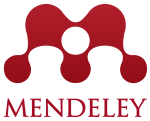Analysis of problem based learning colaborative on critical thinking ability
Abstract
Full Text:
PDFReferences
Cowden, C.D., Santiago, M.F. (2016) Interdisciplinary explorations: promoting critical thinking via problem-based learning in an advanced biochemistry class. J. Chem. Edu., 93(3): 464-469
Giavrimis, P., Papanis, E., Papanis, E.M. (2011) Information and communication technologies and development of learners' critical thinking: primary school teachers' attitudes. Int. Edu. Stu., 4(3): 150-160
Halpern, D.F. (2014) Thought and knowledge: An introduction to critical thinking. New York: Taylor & Francis
Hikmah, N., Abram, P.H., Suherman, S. (2019) The influence of Problem Based Learning Model (PBL) using Lesson Study (LS) pattern on quality of chemistry learning in SMAN 1. Banawa J. Akademika Kim., 8(1): 43-49
Hussain, H., Anwar, N. (2017) Effects of problem based learning on students' critical thinking Ability, attitudes towards learning and achievement. J. Edu. Res., 20(2): 28-41
Leow, F.T., Neo, M. (2014) Interactive multimedia learning: Innovating classroom education in a Malaysian university. Turkish Onl. J. Edu. Technol., 13(2): 99-110
Liu, L., Du, X., Zhang, Z., Zhou, J. (2019) Effect of problem-based learning in pharmacology education: A meta-analysis. Stu. Edu. Eva., 60: 43-58
Merdekawati, A.D.C. (2014) Pengembangan one stop learning multimedia menggunakan software adobe flash pada materi bentuk molekul dan gaya antar molekul kelas XI SMA. J. Pend. Kim., 3(1): 95-103
Mustofa, Z., Susilo, H., Al-Muhdhar, M.H.I. (2016) Penerapan model pembelajaran problem based learning melalui pendekatan kontekstual berbasis lesson study untuk meningkatkan kemampuan memecahkan masalah dan hasil belajar kognitif siswa SMA. J. Pend.: Teori, Penelitian, Dan Pengembangan, 1(5): 885-889
Nirbita, B.N., Joyoatmojo, S., Sudiyanto, S. (2018) ICT Media Assisted Problem Based Learning for Critical Thinking Ability. Int. J. Multicul. Multirel. Unders., 5(4): 341-348
Oktaviani, P., Marwoto, P. (2019) Sets vision of interactive multimedia on the problem based learning in science learning. J. Phy.: Conf. Ser., 1170: 012040
Permendiknas No 81A tahun 2013 tentang implementasi kurikulum
Sani, R.A. (2019) Cara membuat soal HOTS. Tangerang: Tira Smart
Sari, D.S., Sugiyarto, K.H. (2015) Pengembangan multimedia berbasis masalah untuk meningkatkan motivasi belajar dan kemampuan berpikir kritis siswa. J. Inov. Pend. IPA, 1(2): 153-166
Saselah, Y.R., Qadar, R. (2017) Interactive multimedia development based on adobe flash CS6 profesional on learning of chemical equilibrium. J. Kim. Pend. Kim., 2(2): 80-89
Saselah, Y.R., Qadar, R. (2017) Interactive Multimedia Development Based on Adobe Flash CS6 Profesional on Learning of Chemical Equilibrium. J. Kim. Pend. Kim., 2(2): 80-89
Silalahi, A., Hutabarat, W., Tarigan, S., Chandra, Y. (2018) Impact of multimedia-based off-line learning on student motivation and outcomes. Asian J. Soc. Sci. Stu., 3(4): 1
Susilo, H. (2013) Lesson Study sebagai sarana meningkatkan kompetensi Pendidik. In Makalah disajikan dalam Seminar dan Lokakarya PLEASE, pp. 28-34
DOI: https://doi.org/10.24114/jmns.v1i1.28467
Article Metrics
Abstract view : 160 timesPDF - 91 times
Refbacks
- There are currently no refbacks.
Editorial Office:
Faculty of Mathematics and Natural Sciences-Universitas Negeri Medan
Jl. Willem Iskandar / Pasar V, Medan, Sumatera Utara – Indonesia
Kotak Pos 1589, Kode Pos 20221
Telp. +6285260614736
E-mail : jmns@unimed.ac.id

Journal of Mathematics and Natural Sciences is licensed under a Creative Commons Attribute 4.0 Internasional Licence.



